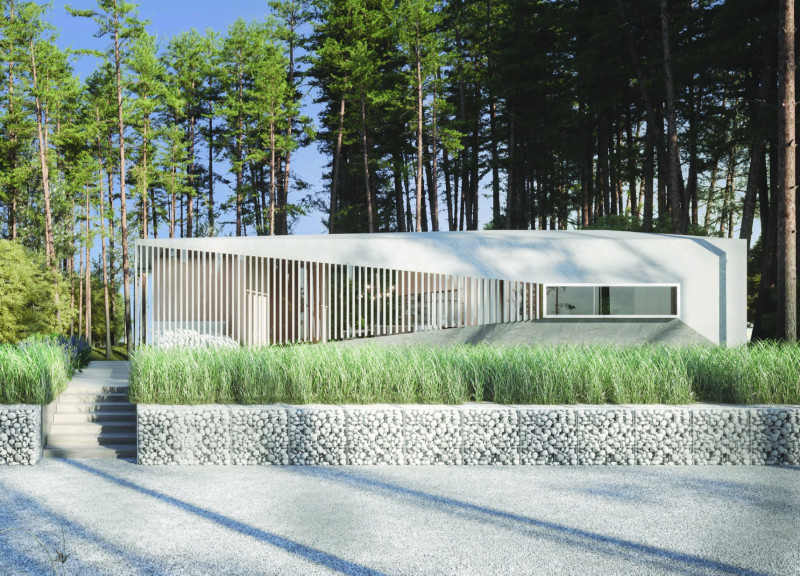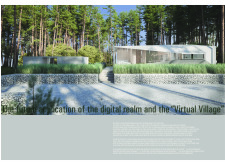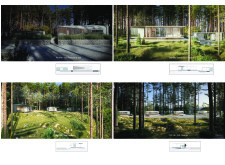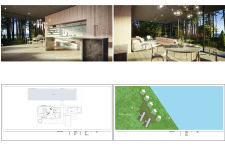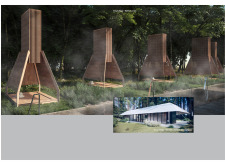5 key facts about this project
The Virtual Village presents a thoughtful exploration of how living spaces can function in a digital context. Designed for users known as virtual travellers, the project emphasizes a blend of nature and technology. It aims to create an environment where individuals can maintain personal privacy while also being part of a shared community. The layout allows for both private retreats and spaces for collaboration, catering to the needs of a diverse group of users.
Pod Villa
At the core of the design is the pod villa, which provides private spaces for residents. These villas are tailored to the needs of individual users, offering a sense of comfort and solitude. The design prioritizes user privacy, while also keeping residents connected to the broader community. The thoughtful arrangement encourages interaction, allowing users to switch between personal time and social engagement effortlessly.
Tent Villa
Alongside the pod villa, the tent villa serves as a common area for meetings and group activities. This space is designed to support a range of functions, from casual gatherings to more focused work sessions. Its flexible nature fosters connections among virtual travellers, creating an atmosphere of collaboration and shared experiences. The tent villa enhances the project's goal of promoting community interaction within a digital setting.
Virtual Mediation Spa
Another important feature of the Virtual Village is the virtual mediation spa. This area is intended for relaxation, providing a getaway for users who wish to decompress from their activities. The spa emphasizes mental well-being, recognizing the need for spaces that support calm and reflection in a busy digital environment. It creates a sanctuary for users, inviting them to take a break from their online engagements.
The overall design of the Virtual Village shows a careful consideration of how individuals interact in digital spaces. Users can move from personal pods to communal areas, experiencing a rhythm of solitude and connection. Each element of the design contributes to an environment that values both individual needs and community ties. This careful balance enhances the user experience in a complex virtual landscape.


